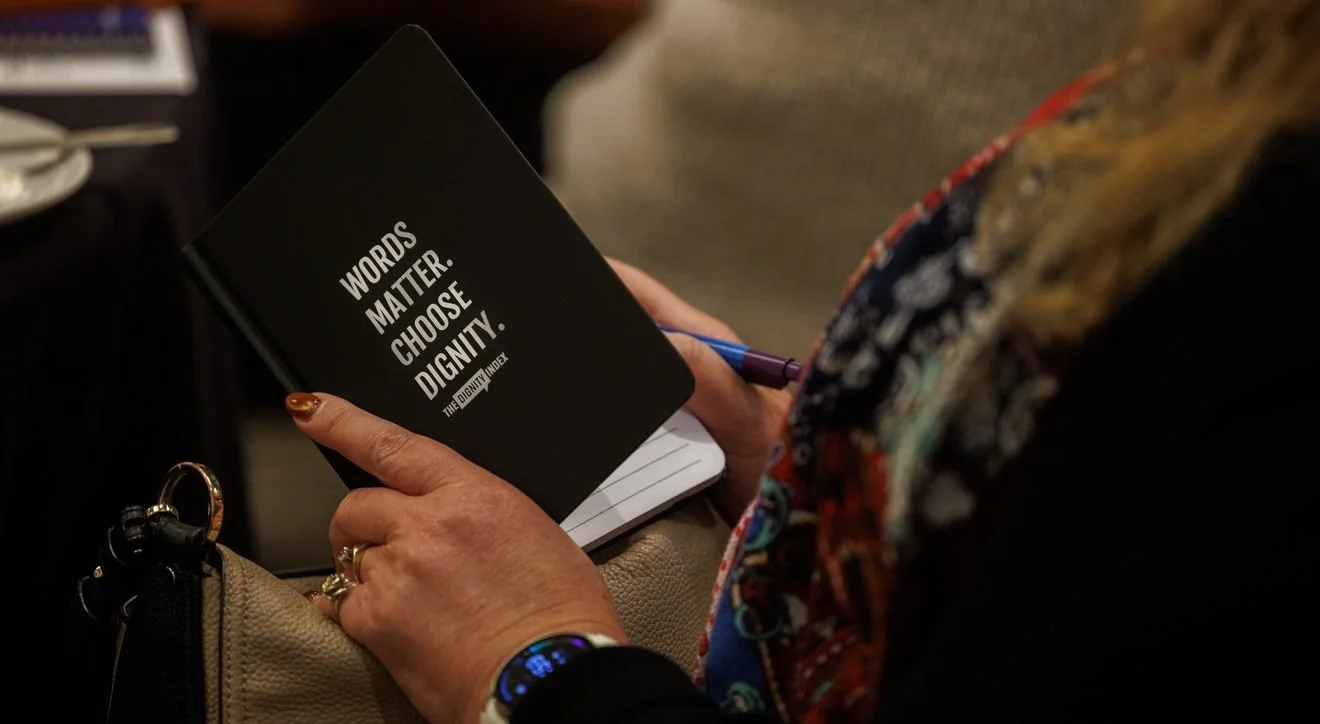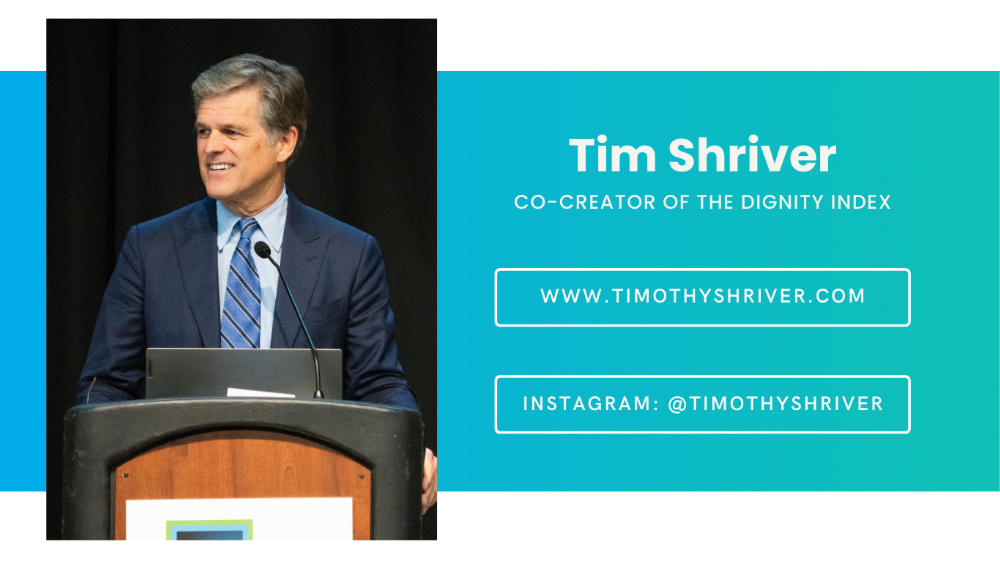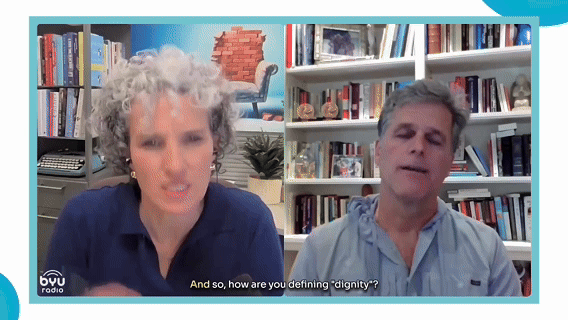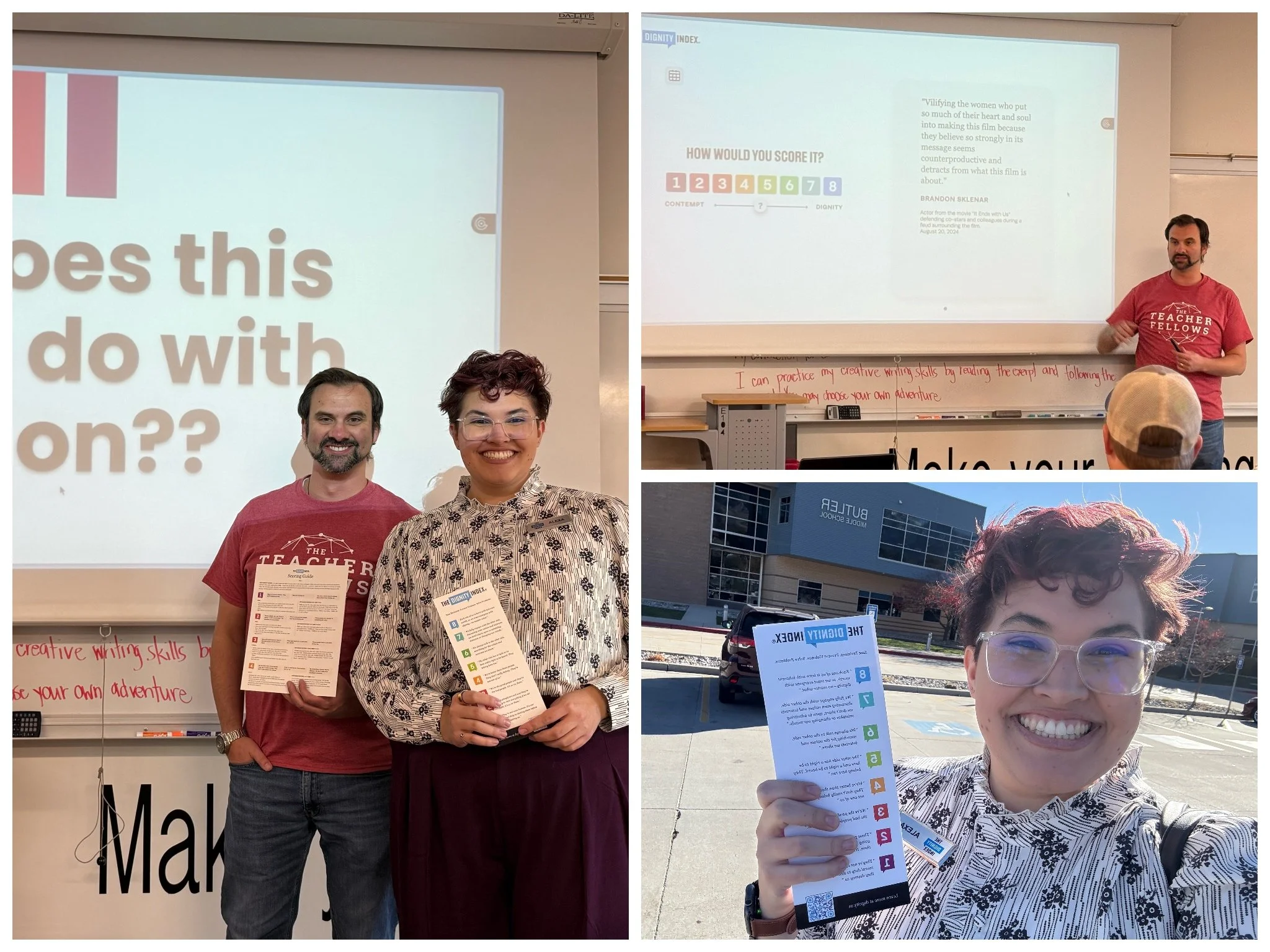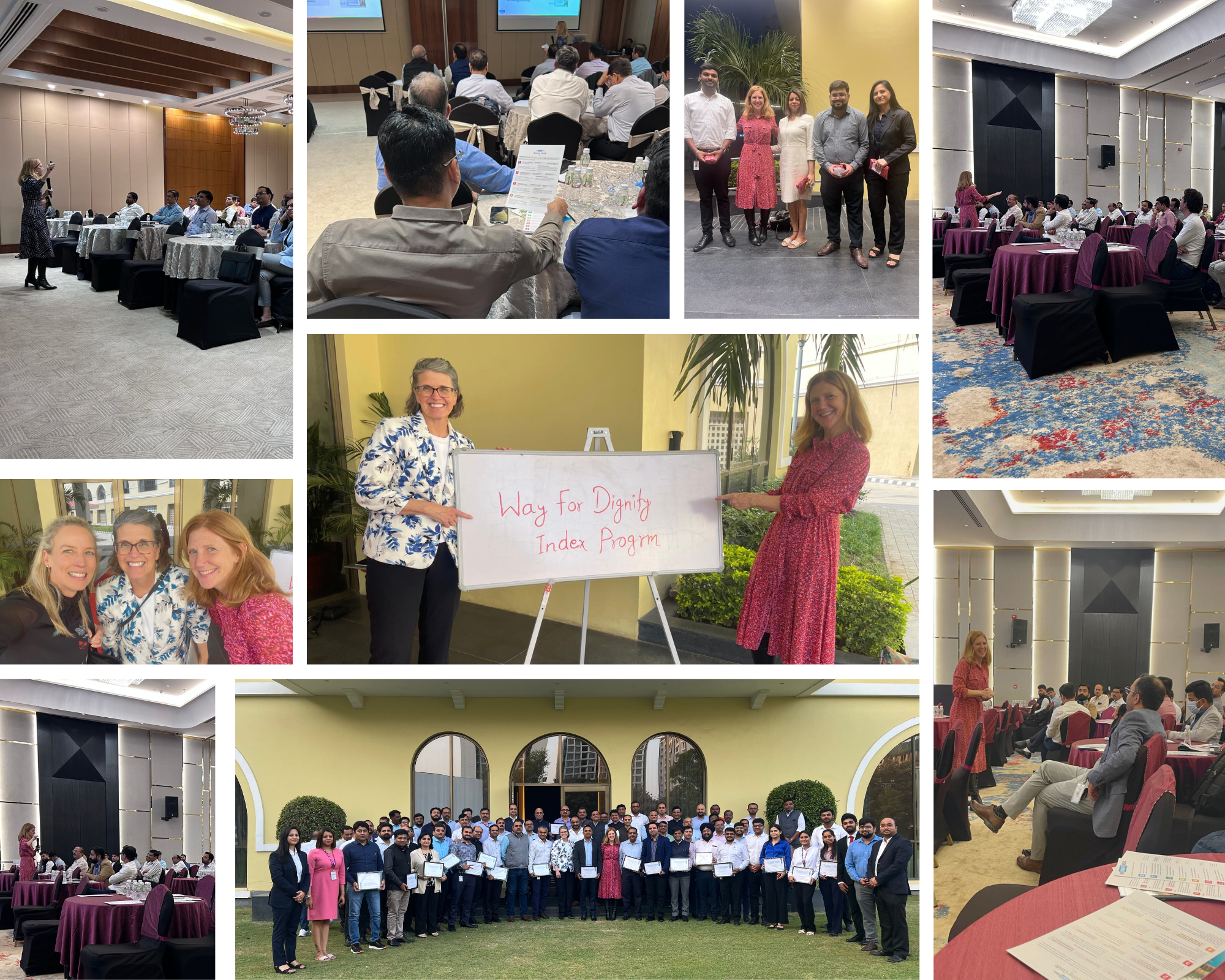I’d just concluded a presentation about our dignity movement to a group of bridge builders and community leaders in Utah and was chatting with some of the attendees. I noticed a guest whom I’d seen earlier at a breakfast conversation, and I remembered seeing her at our dignity summit the day before.
I’d been told that she was a serious opponent of our work—an activist who’d attacked us on social media. Nonetheless, I approached her to thank her for attending and to meet her one-on-one.
“I’m Tim. Thanks so much for attending our dignity summit yesterday and for being here for my presentations today! What do you think?”
“I’m Susan,” she replied (I’m not using her real name as she hasn’t given me permission to do so). It’s been interesting to listen to your point of view, because, in my community, you’re public enemy #1.”'
“Me?” I replied in a slight state of shock. “I’m your public enemy #1??”
“Yup,” she continued. “My community thinks you’re dangerous.”
“Do you agree with them?” I asked?
“Well, I can share with you that I’ve listened to you over the last few days, and I’m willing to give you the benefit of the doubt. I don’t agree with you on a lot of things, but I’m starting to think you have good intentions. That’s definitely not where I started!”
“Wow. That sounds like a lot of progress. Thank you.”
The “public enemy #1” stuff caught me off guard, but honestly, I thought it was kind of a joke. It turns out, it wasn’t.
Susan is part of a group of self-described “conservatives” who have been tracking the dignity movement for a few years and have reached some pretty damaging conclusions about us. They’d come to believe that our values are misguided, and that we’re motivated by aims to infiltrate American institutions with ideas that are inconsistent with their way of life.
Perhaps most importantly, she brought to the summit experiences where she and other colleagues felt marginalized and unheard—that she has felt repeatedly ignored and treated with contempt by public officials.
She’d decided to attend our dignity summit and several public events to gather real-time evidence to support her frustration.
Happily, after spending almost two days in various dignity events, Susan and her teenage son, who accompanied her, reached different conclusions. She concluded that she likes our emphasis on dignity—that it’s consistent with the values she espouses. She also concluded that our goal of improving the way we treat each other is consistent with her commitment to civic dialogue and public discourse.
She’s not keen on our 1-8 rating system.
As I understand it, she and many of her allies think that using numbers to rate speech will result in rating people as “good” or “bad” and then trying to “cancel” them. I assured her that we are not about rating “people” but are about rating speech. I emphasized that our goal is to expose how contempt works so that we can reduce contempt and increase dignity. As we say, “Contempt is hard to see when you use it, but hard to use once you see it.” Our Index numbers are designed to help us see it, so we use less of it.
She and I talked for quite a while and agreed to continue to be in touch. We talked again last week by Zoom, and while I can’t say we’re friends, we’re at least talking.
She told me several times that her community doesn’t feel that most people in power listen to them. I told her I don’t want to be one of those people who don’t listen. I shared with her that folks like me often feel judged and maligned based on rumors and distortions, and she told me that she doesn’t want to be one of those people who accuse me of motives without asking and checking the facts. I read her literature and told her that there was almost not a word with which I disagreed. She was surprised and acknowledged that she agreed with most of our dignity literature, too.
I was fascinated by what felt like real-time change for both of us. We were both open to the possibility that we might be wrong about the other, and we were both moved to relax our hostility and listen. Something inspired her to give me and my work a closer look, and I hope she felt the same movement from me. That’s the eye of dignity opening the heart to connection.
I noticed similar themes in the public comments of Rep. Marjorie Taylor Greene last week. Needless to say, she’s been a kind of public enemy of the left for years and now appears to be a public enemy of the right. But what fascinates me is her description of her own transformation.
Last week, she opened up about her current perception: "And I would like to say, humbly, I'm sorry for taking part in the toxic politics. It's very bad for our country…“It's been something I've thought about a lot, especially since Charlie Kirk was assassinated. I'm only responsible for myself and my own words and actions, and I'm committed—and I've been working on this a lot lately—to put down the knives in politics. I really just want to see people be kind to one another.”
That sounds a lot like Susan and me. I feel like she’s treating me with dignity, and I hope she feels that I’m treating her with dignity too. It was clear that our perceptions of each other had been distorted by political rhetoric, social media contempt, and a lack of connection. Put bluntly, she’d been fed lies about me and I about her. We’re nowhere near as far apart as we’d been led to believe.
Susan and I are just two people, and we’re probably not going to change anything more than the tenor of the discussions between the two of us. But she gives me hope—a lot of it. I hope everyone in the dignity movement finds someone like Susan who’s on the opposite side of their political views and opens up a relationship with that person. I hope good listening and curiosity, and a little humility, will guide a flourishing of those relationships. I hope those relationships–one by one–help reduce anxiety, prevent violence, and lead to better problem-solving.
That’s a dignity movement, one relationship at a time. I hope you join it.
It will be wonderful if Susan and I are able to stay connected. I’m not sure what’s next, but I am grateful that we’re in touch. Thank you, Susan.
I hope you’ll each find a way to be in touch too.

